UK Football Pioneers are Focal Point of Greg Sankey's SEC Media Days Opening Address

Each year SEC Media Days begin with a statement from the Commissioner. Each year it begins with a pat on the back to celebrate the conference’s long list of accomplishments. Each year we’re lucky to hear one mention of Kentucky. This year that was not the case.
After Greg Sankey read through the SEC’s 2016-17 titles, the Commissioner asked us to look even further back to the year 1967. He didn’t do it to remind us it was the first year the Super Bowl was played. He didn’t do it to give the ABA’s Kentucky Colonels a shout out. He did it to acknowledge Kentucky’s Nate Northington, the first African-American to play varsity football in the SEC.
“This September will mark the 50th anniversary of that Autumn Saturday,” Sankey said. “When the Kentucky football team reported for preseason practice in 1967, there were four young African-American men who were part of that program; Nate Northington, Greg Page, Wilbur Hackett and Houston Hogg. Northington and Page were varsity players. Hogg and Hackett freshman recruited to join Kentucky’s team.
“These four men, one whose life was lost too soon, one who broke the color barrier in football in the Southeastern Conference and two others who carried forth the torch of change in Kentucky in the SEC dealt with realities most of us don’t understand, and they were not alone over the years this change took place.”
Page, Northington, Hackett and Hogg’s story was the primary focus during Sankey’s speech. It’s a story that’s been overshadowed for far too long, but one that has an enormous effect throughout the African-American community in the South that can be best explained by a quote from Dr. King.
“In April of 1963, not far from this very spot, a letter from Birmingham Jail, Dr. Martin Luther King, Junior wrote this quote: ‘We’re caught in an inescapable network of mutuality tied in a single garment of destiny. Whatever affects one directly affects all indirectly.’
“By playing in a football game on September 30th, 1967, Nate Northington affected us all,” Sankey said. “This network of mutuality involves more than the four football players at Kentucky, more than just one date, one sport, one team, or one university.”
Sankey proceeded to read off the names of African-Americans who broke the color barrier at each SEC institution, all which stemmed from the sacrifice of UK’s four pioneers.
“The winds of change began earlier than the fall of 1967, but the seeds of change planted by Stephen Martin, Nate Northington and Perry Wallace and so many others have blossomed today into hundreds of opportunities in every SEC sport all across the campuses of our great universities.”
Northington’s time at Kentucky ended earlier than expected after he decided to transfer following his sophomore season. Sankey drew to a Courier-Journal column from the time that described African-Americans in the SEC as a failed experiment.
“Last year, the ceremony unveiling a statue to honor Nate and his three teammates which now stands on Kentucky’s campus, he (Northington) said this: ‘Now, it doesn’t look like a failure to me.'”
The SEC has invited Kentucky’s three living pioneers — Northington, Hackett, Hogg — and the family of Greg Page to this year’s SEC Championship Game to honor and celebrate their sacrifice 50 years later.
You can read all of Sankey’s profound and poignant speech about UK’s pioneers after the jump.
Commissioner Greg Sankey
“The year ahead will provide us with some opportunities to remember some special people and some special moments in this conference, beyond just 85 years of existence. It’s about people who are more than history, but people who formed our story.
To do this, I want to take you back to 1967. Many of you weren’t around in 1967. Those of you who were, that memory may be a bit hazy at this point. So let’s share a few facts about that year. First, Super Bowl I was played in
Los Angeles. The American Basketball Association was formed giving us multi-colored basketballs. The Kentucky Colonels, Pittsburgh Piper, Minnesota Muskies and the Indiana Pacers, amongst some others that have endured.
Senator John McCain was a naval aviator shot down over North Vietnam, and he became a prisoner of war. Thurgood Marshall appointed as the first African-American to serve on the United States Supreme Court. Any search of history reminds us of the protests around the United States’ involvement in the Vietnam War at that time and the unrest throughout the country around race and civil rights issues.
And on September 30th, 1967, Nate Northington, a sophomore football student athlete at the University of Kentucky ran on to the gridiron at Kentucky’s Stoll Field to play in the Southeastern Conference football game against the University of Mississippi making him the first African-American to represent an SEC University and a varsity football contest as a varsity student athlete in the SEC.
This September will mark the 50th anniversary of that Autumn Saturday. If you know the story, you know there’s sadness associated with what happened that day. The day before on Friday evening, Nate Northington learned that his roommate and Kentucky football teammate, Greg Page, had died as a result of an injury he suffered during football practice earlier that year.
Nate learned that tragic news from his head coach the morning of September 30th, the day on which he played in that football game against Ole Miss. When the Kentucky football team reported for preseason practice in 1967, there were four young African-American men who were part of that program; Nate Northington, Greg Page, Wilbur Hackett and Houston Hogg. Northington and Page were varsity players. Hogg and Hackett freshman recruited to join Kentucky’s team.
These four men, one whose life was lost too soon, one who broke the color barrier in football in the southeastern conference and two others who carried forth the torch of change in Kentucky in the SEC dealt with realities most of us don’t understand, and they were not alone over the years this change took place.
Later that same fall, Nate Northington decided to transfer. He didn’t leave Kentucky without encouraging his two teammates, Hogg and Hackett, to remain and finish what he and Greg Page had started. Houston Hogg finished four years of studying and playing at Kentucky. He married and raised 6 children at last count, had 19 grandchildren. And remarkably he and his wife, Deborah, opened their home to over 200 foster children during their lives.
Wilbur Hackett was eventually elected Kentucky’s team captain, the first African-American elected as a team captain among any of the SEC teams. Wilbur later became a football official in the SEC, and he still works today with our officiating program. If you do a Google search on Wilbur, probably the first thing you’ll find is him meeting with Stephen Garcia at a football game at South Carolina a few years back. And he served well. In fact, these were and are remarkable people.
In April of 1963, not far from this very sport in the early portion, a letter from Birmingham Jail, Dr. Martin Luther King, Junior wrote this quote: We’re caught in an inescapable network of mutuality tied in a single garment of destiny. Whatever affects one directly affects all indirectly.
By playing in a football game on September 30th, 1967, Nate Northington affected us all. This network of mutuality involves more than the four football players at Kentucky, more than just one date, one sport, one team, or one university.
I’ve heard enough to know the names of the people I’m about to read are important, and I’ve heard some of their stories because they are the people who were among the first African-American student athletes either on their campuses or in this conference. I’m going to read these names. Wendell Hudson from Alabama in basketball. Gill Brown in football at Arkansas, then a member of the Southwest Conference. Henry Harris in basketball at Auburn. Johnny Brown at the University of Florida running cross-country in the fall of 1967. And Ron Coleman who was the university’s first African-American scholarship student athlete completing in track and field the next spring. *maxi Foster in track and field at Georgia.
As I mentioned, Nate Northington in that varsity football game. Henry LeBoyd in baseball at LSU. Coolidge Ball an Ole Miss basketball player. Robert Bell and Frank Dowsing at football at Mississippi State. And Missouri, it was the 1958-59 season, then as a Big Eight member, they had Al Abram join as a basketball player. South Carolina, the name is Jackie Brown, Carlton Haywood and Casey Manning, Lester McClain in football at Tennessee, along with James Craig and Audry Hardy from the volunteers track and field program.
Texas A&M, that institution was in the Southwest Conference, Curtis Mills, Sidney Chachere, Hugh McElroy, Edgar Harvey in track and field. At Vanderbilt, it was Godfrey Dillard and Perry Wallace, its freshman basketball players in 1966 and ’67 season. Perry Wallace as a member of the varsity team at Vanderbilt becoming the first African-American varsity basketball player in the Southeast Conference during the 1967-68 season.
One more note of honor for Stephen Martin who at Tulane University became the first African-American student athlete to represent an SEC member institution on the playing field, which Tulane was as a member of the SEC in 1965.
Within this list of names, there are stories of success and tragedy, achievement, and disappointment, heartache, and hurt, and yet, forgiveness and reconciliation, dignity, and grace. The contributions to change go well beyond football, and the winds of change began earlier than the fall of 1967.
But the seeds of change planted by Stephen Martin, Nate Northington and Perry Wallace and so many others have blossomed today into hundreds of opportunities in every SEC sport all across the campuses of our great universities. From all of the stories, particularly those stories of Kentucky’s four, it was a comment from Nate Northington that stood out to me. According to an article in the Louisville Courier Journal, when he transferred from the University of Kentucky, someone told him the experiment of African-Americans in the SEC was a failure.
Last year, the ceremony unveiling a statue to honor Nate and his three teammates which now stands on Kentucky’s campus, he said this, quote, now, it doesn’t look like a failure to me, end of quote.
If you look to the 2017 SEC football championship game, at the new Mercedes-Benz Stadium in Atlanta, we’ll invite Nate Northington, Wilbur Hackett and Houston Hogg along with the family of Greg Page to join us in remembering, honoring and celebrating what they helped change 50 years ago. And beyond just this game in December, just as has happened on many of our campuses, at the conference level, we see unique opportunities to honor the courage and leadership shown by so many in changing the face of the Southeastern Conference.
We are indeed caught in an inescapable network of mutuality. Those who endured in the early moments of change, serve as a reminder of our mutual responsibility to support the opportunities for young people today, make certain we foster their education and their graduation, support the hiring of coaches and administrators with an eye towards the diversity present on our intercollegiate athletic teams and bring together our communities, both despite and because of our athletic rivalries.
In April of this year, I saw an incredible picture of what Dr. King described in his observation that were caught in an inescapable network of mutuality, tied in a single garment of destiny. Whatever affects one directly affects all indirectly. It was April 9th, a Sunday, I was invited to join in the parade in Columbia, South Carolina, celebrating the Gamecocks national championship in women’s basketball, and as I rode through the parade, you can imagine there was a smile on my face for two reasons; one, knowing the SEC had the two teams playing in that year’s — this year’s women’s basketball national championship game, Mississippi State and South Carolina. But the other reason was because as I rode through that parade route and looked at the people cheering, what I saw were in the crowd, men and women, young and old, all different socioeconomic statuses, black and white, all different ethnicities, all joined together in celebrating their team.
And that celebrated — that celebration concluded on the steps of the South Carolina State Capitol, where two years ago through the leadership of many in that state, and following a tragic shooting in a Charleston church, the Confederate battle flag was lowered and removed from the State Capitol grounds for a final time. The result is opportunity for young people. And last March, the SEC and NCAA returned basketball tournaments to Greenville, South Carolina, for us, the first time since 2005 that had occurred.
It should also not be missed that when African-American woman, Dawn Staley, stands on the steps of that State Capitol, as a coach joined by her team with throngs of fans recognizing her leadership and the achievement of that team. She’s there not only as the coach of the Gamecocks, but also of the United States Women’s Basketball National Team. It’s then that we understand that whatever affects one directly, affects all indirectly.
All of this reminds me of the lyrics from one of my favorite bands, U2 from their album from 2000 All That You Can’t Leave Behind, the lyrics include these words, what once was hurt, what once was friction, what left a mark no longer stings, because grace makes beauty out of ugly things. Our journey is certainly not complete. There’s hurt. There still remains friction, but to those who helped us change and to those who will help us change in the future, thank you for the strength and the grace you’ve shown.”
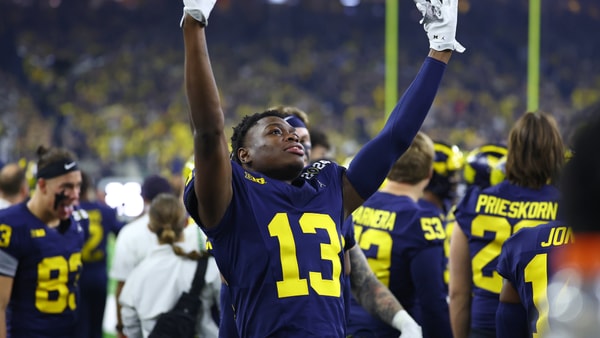
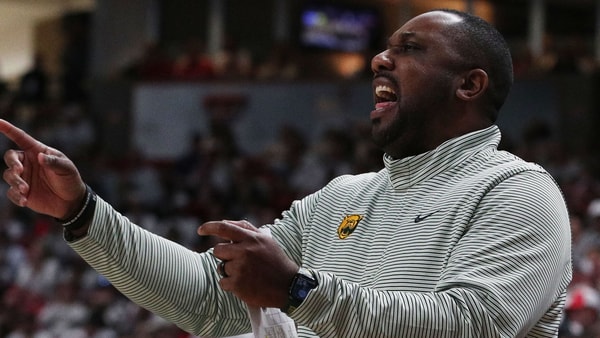
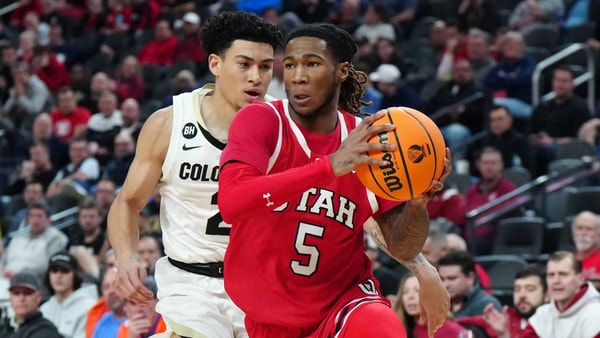
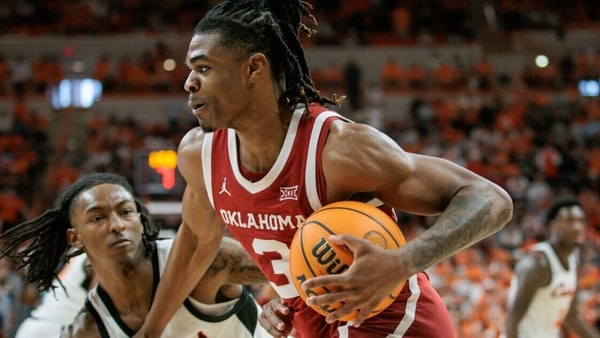
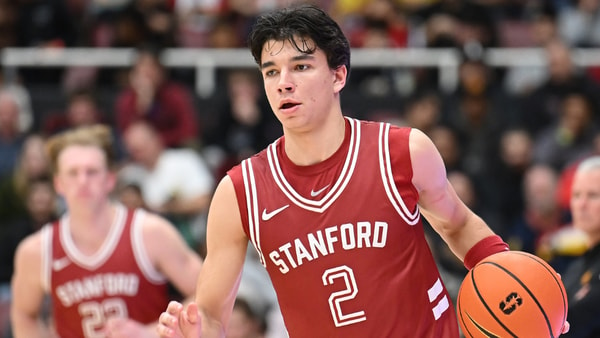
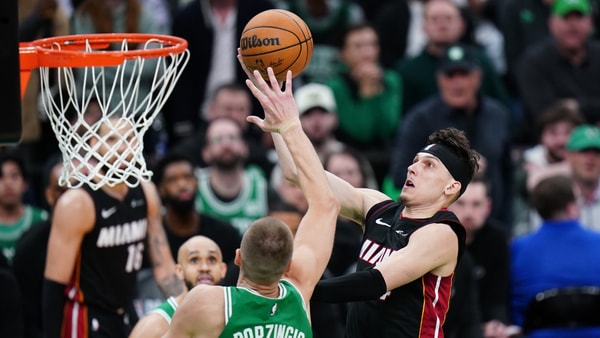
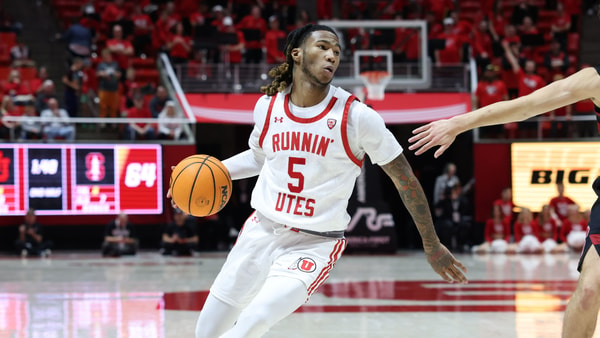
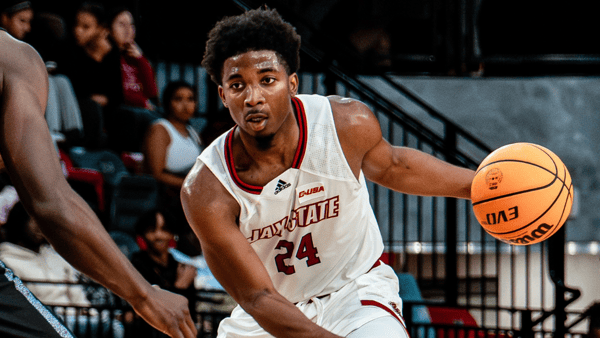
Discuss This Article
Comments have moved.
Join the conversation and talk about this article and all things Kentucky Sports in the new KSR Message Board.
KSBoard